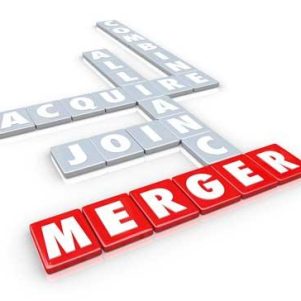As a reminder, due diligence, normally used in the scope of business acquisitions, refers to the information search process led by the potential buyer on the business which he plans to acquire. Such investigation focuses on several aspects of the business such as its scope of activity, its possibilities and prospects, its assets and liabilities, etc.
Terms of the due diligence process
To carry out an analysis and verification of a company’s relevant data for the potential buyer, the seller can facilitate this information conventionally or by setting up a data room.
In the case of conventional due diligence, the purchaser shall notify the seller of the information he wishes to know to conduct his analysis, for the seller to prepare it and deliver it to the buyer. In addition to this access to the required documents and the company’s facilities, the buyer will also have the opportunity to speak with the company’s management and staff. In this way, the potential purchaser and the company itself will establish personalized contact.
In the case of setting up a data room, the seller will provide the different potential acquirers with the necessary documentation for their investigation of the economic sustainability of the business transmission operation. This delivery will take place in a data room, a physical or virtual space, which can be established outside the company facilities.
Conventional due diligence is more flexible in that it allows more fluid and personal contact between the parties of the projected transaction. Nevertheless, it is likely that with this method the due diligence process may suffer many interruptions, slowing the negotiations and decreasing the privacy of the communications.
Setting up a data room also has advantages: with this method, the negotiations will not suffer any interruption. This method is particularly suitable in cases where the projected operation requires a high degree of confidentiality and when one wishes to maintain the most control over the process.
Process of due diligence
First phase: the preliminary phase
The purchaser shall specify the guidelines of the investigation and choose the professionals (tax experts, auditors, accountants, etc.) who will carry out the investigation.
Similarly, the seller must designate the professionals who will be part of the investigation team, responsible for answering the information requests.
Note: The selection of the investigation team has a key role in the process of due diligence. At the time of determining its composition, several factors should be taken into account such as the technical capacity, the methodology and the experience in similar businesses of its members. The team must be multidisciplinary to be effective and composed of experts in all the areas relevant to the investigation.
Second phase: the investigation phase (recovery and analysis of information)
See details of the progress of the analysis in The importance of due diligence in business transfer operations.
Third phase: the confirmation of the data phase
During this phase, the buyer shall check the legal dimension of the information he received about the various aspects of the business. Generally, the seller will be required to provide some explanations to the buyer on specific points. That is why it is appropriate to establish a schedule of meetings for this purpose.
Fourth phase: the transmission of the due diligence report
All the information as well as their legal analysis shall be gathered and included in a report.
This due diligence report is generally structured as follows:
- A short introduction on the subject, the dimension and the reason for the work performed and a resume to inform the buyer of the main aspects on which he should focus.
- There will be a chapter for each legal sector analyzed. Each chapter will include a summary of the items under review (assets, buildings, contacts, etc.), the documentation and information used for this review, and a legal analysis of the aspect in question.
- At the end of the report or each chapter, the buyer will find a summary of the major irregularities or negative aspects identified, its possible legal consequences and, in its case, the possible alternative solutions.
- The report shall also include appendices that contain the data or information granted by the company itself, whose observation or knowledge appears to be relevant.
It is appropriate to designate in advance the people who will be responsible to deliver the due diligence report given the confidential nature of this document. It is also appropriate to include a confidentiality clause to forbid its diffusion to third parties other than the parties to the projected business transfer operation and its use for purposes other than those agreed.
The cost of the due diligence
The cost of the due diligence varies depending on the hours that the various advisers employed to perform it. Furthermore, the higher the due diligence is in importance and depth, the more it will cost. Nevertheless, the cost is usually 1% of the overall volume of the business sell-purchase transaction.
Inés Ducom & Nicolás Melchior
More articles about due dilligence:
The importance of due diligence in business transfer operations
Concept and purposes of the due diligence in Spain
For further information on the phases of due diligence when transferring a business in Spain,




